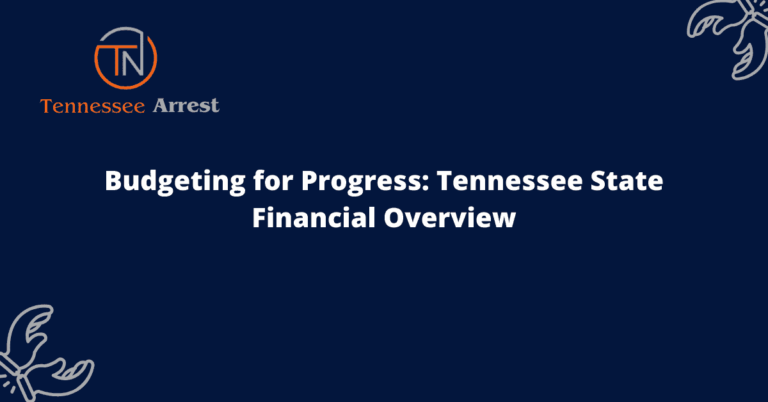State Government Blueprint: Understanding Tennessee’s Structure
As one of the 50 states that make up the United States of America, Tennessee is governed by a unique structure that ensures the smooth functioning of the state’s affairs. Understanding Tennessee’s state government blueprint is crucial to comprehending the decision-making processes and divisions of power within the state. From the executive branch, headed by the governor, to the legislative and judicial branches, Tennessee’s government structure plays a vital role in shaping the state’s policies and laws.
The executive branch of Tennessee’s state government is led by the governor, who is elected by the people and serves as the chief executive officer. The governor is responsible for overseeing the daily operations of the state, making appointments to various offices, and proposing and implementing policies. Alongside the governor, the executive branch also consists of other elected officials, such as the lieutenant governor and the secretary of state, who work together to ensure the efficient running of the state government.
Legislative Branch: Making Laws for the State
The legislative branch of Tennessee’s state government is responsible for creating and passing laws that govern the state. It is composed of two houses: the Senate and the House of Representatives. Members of both houses are elected by the people, and their main role is to represent the interests of their constituents and propose legislation that addresses the needs of the state.
The Senate: Representing the State’s Interests
The Senate is made up of 33 members, with each member representing a specific district within the state. Senators serve four-year terms, and their responsibilities include reviewing and voting on proposed bills, confirming appointments made by the governor, and conducting investigations and hearings on matters of public interest.
The House of Representatives: Ensuring Local Representation
The House of Representatives consists of 99 members, with each member representing a specific district within the state. Representatives serve two-year terms and are responsible for introducing and voting on legislation, as well as representing the interests of their constituents. They also play a crucial role in the budget process, as all revenue bills must originate in the House of Representatives.
Judicial Branch: Upholding the Law and Administering Justice
The judicial branch of Tennessee’s state government is responsible for interpreting and applying the law, as well as administering justice. It consists of several levels of courts, each with its own specific jurisdiction and responsibilities.
Tennessee Supreme Court: The Highest Court in the State
The Tennessee Supreme Court is the highest court in the state and has the final authority to interpret the state’s constitution and laws. It consists of five justices who are appointed by the governor and confirmed by the legislature. The Supreme Court hears appeals from lower courts and has the power to review and overturn their decisions.
Court of Appeals: Reviewing Lower Court Decisions
The Court of Appeals is the intermediate appellate court in Tennessee and reviews decisions made by trial courts. It consists of 12 judges who are divided into three panels. The Court of Appeals ensures that lower court decisions are fair and consistent with the law.
Circuit, Chancery, and Criminal Courts: The Trial Courts
Tennessee has several trial courts, including circuit, chancery, and criminal courts. These courts are responsible for hearing and deciding cases at the trial level. Circuit courts handle civil and criminal cases, chancery courts handle matters related to equity and probate, and criminal courts handle criminal offenses.
FAQs
What is the structure of Tennessee’s state government?
Tennessee’s state government is structured as a three-branch system, consisting of the executive, legislative, and judicial branches. The executive branch is headed by the governor, who is responsible for implementing and enforcing laws. The legislative branch is composed of the General Assembly, which consists of the Senate and the House of Representatives, and is responsible for making laws. The judicial branch is responsible for interpreting and applying the law.
What are the powers and responsibilities of the governor?
The governor of Tennessee is responsible for overseeing the state’s executive branch and implementing laws. They have the power to veto legislation, appoint officials, prepare the state’s budget, and serve as the commander-in-chief of the state’s National Guard. The governor also has the authority to grant pardons, commute sentences, and extradite fugitives.
How are laws made in Tennessee?
Laws in Tennessee are made through the legislative process. A bill is introduced in either the Senate or the House of Representatives, and it goes through several readings, committee hearings, and votes before it can become a law. Both chambers must pass the bill in identical form, and it must be signed by the governor to become law. Alternatively, if the governor vetoes a bill, it can still become law if it is overridden by a two-thirds majority in both chambers.
What is the role of the General Assembly in Tennessee?
The General Assembly in Tennessee is the legislative body responsible for making laws for the state. It is composed of the Senate and the House of Representatives. The General Assembly has the power to propose, consider, and pass legislation. Its members are elected by the citizens of Tennessee, and they represent different districts within the state.
How are judges appointed in Tennessee?
In Tennessee, judges are appointed by the governor. When a judicial vacancy occurs, a nominating commission reviews applications, interviews candidates, and submits a list of qualified individuals to the governor. The governor then selects a judge from the list. However, judges must still stand for retention elections after their initial appointment to continue serving on the bench.
What is the importance of understanding Tennessee’s state government structure?
Understanding Tennessee’s state government structure is crucial for citizens to participate effectively in the democratic process. It allows individuals to comprehend how laws are made, who holds power, and how decisions are made that impact their lives. By understanding the structure, citizens can engage with their elected officials, hold them accountable, and advocate for changes that align with their interests and values.






